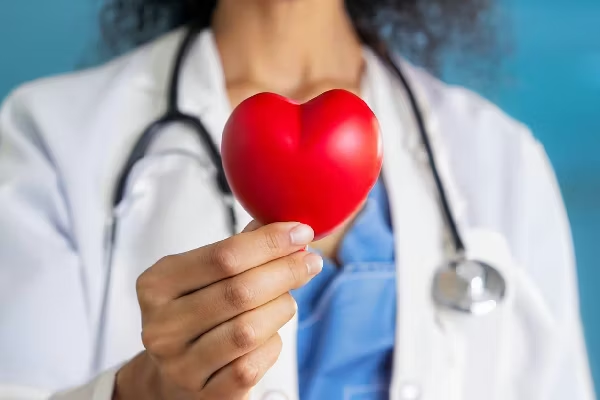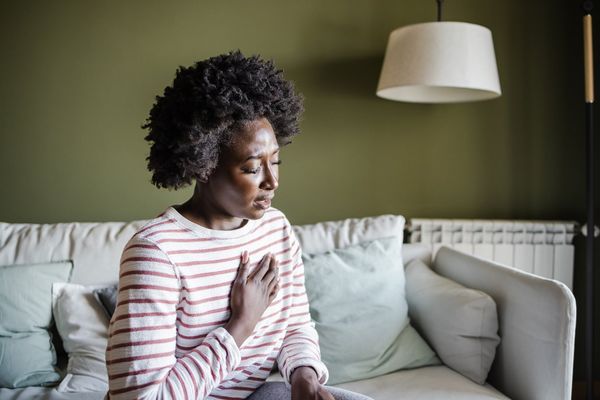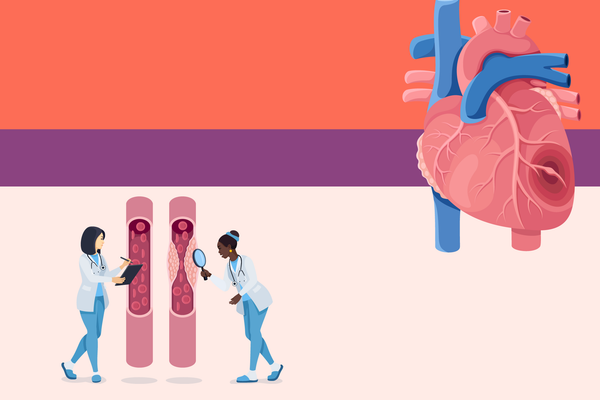February might make you think about Valentine's Day, but while you're at it, think about your heart from a health angle, not just a romantic one.
The fact is, we need to know how to protect this precious organ, roughly the size of a large fist, weighing in anywhere from eight to 12 ounces in humans but weighing as much as 1,500 pounds(!) in blue whales. You need to work hard to keep your heart healthy, because it's working hard for you, beating about 100,000 times a day, moving about six quarts of blood throughout the body each day.
Heart disease is nothing new; it's been found in 3,000-year-old mummies. But despite its long history, the incidence of cardiovascular disease (CVD) continues to grow. It's the leading global cause of death, accounting for more than 17.6 million deaths per year in 2016 (one out of three deaths). That number is expected to increase to more than 23.6 million by 2030.
To protect yourself, start by paying attention to what the American Heart Association calls "Life's Simple 7":
Not smoking
Physical activity
Healthy diet
Control of cholesterol
Control of blood sugar
Control of blood pressure
Control of body weight
And don't ignore the importance of sleep for your heart health. Sleep deprivation (but also sleeping too much) puts you at a higher risk for CVD, regardless of your age, weight, smoking and exercise habits. Not only sleep apnea, but garden-variety sleep issues can cause disruptions in any underlying health conditions and biological processes (like glucose metabolism, blood pressure and inflammation), according to the National Sleep Foundation.
Also of importance: managing stress, limiting alcohol and, if you take them, adhering to your medication schedule. These all go a long way toward helping reduce your risk of CVD.
Learn more about Simplifying Stress in Your Life.
As women, our hearts are a bit different than men's. For one thing, they're on the lighter side. For another, they beat an average of eight beats per minute faster than men's. Yet it's imperative to know that heart disease does not discriminate based on gender. All women face the threat; it's the leading cause of death in women over 35, disabling and killing more women than cancer, notes cardiologist Dr. Nieca Goldberg in her book, Dr. Nieca Goldberg's Complete Guide to Women's Health.
Heart disease is occurring more often in young adults, partially due to health conditions leading to it (like high blood pressure and obesity), which are happening at younger ages. In fact, two in five women have a heart that seems the age of someone five years older than their actual age because of risk factors like smoking, an unhealthy diet or inactivity.
Yet many women don't get treated for heart disease or don't recognize the signs, because they can be different from those of men. As a result, many women seek help later or get dismissed as having anxiety and/or stress, after heart damage has taken hold.
Most commonly, the signs—which are usually not the classic clutch-your-chest-in-pain-and-collapse scenario—involve some sort of chest pain, pressure or discomfort that can come and go or last for more than a few minutes. And there are the more subtle signs, which can include:
Nausea
Vomiting
Dizziness
Fatigue
Shortness of breath
Stomach pain or indigestion
Back pain
Feeling generally unwell
Neck, jaw, shoulder, upper back or abdominal discomfort
Pain in one or both arms
Sweating
Lightheadedness
Read Am I Having a Heart Attack?
And of equal importance to all women: We must be our own advocates. If you think you're experiencing a heart attack, don't dismiss it and don't allow medical personnel to do so, either, just because you're a woman.
Here's something else every woman should know: We are less likely to be prescribed statin therapy, angioplasty, stenting and cardiac rehabilitation to prevent future heart attacks than are men. But the Mayo Clinic and other experts point out that studies demonstrate similar benefits in these effective treatments for both groups.





